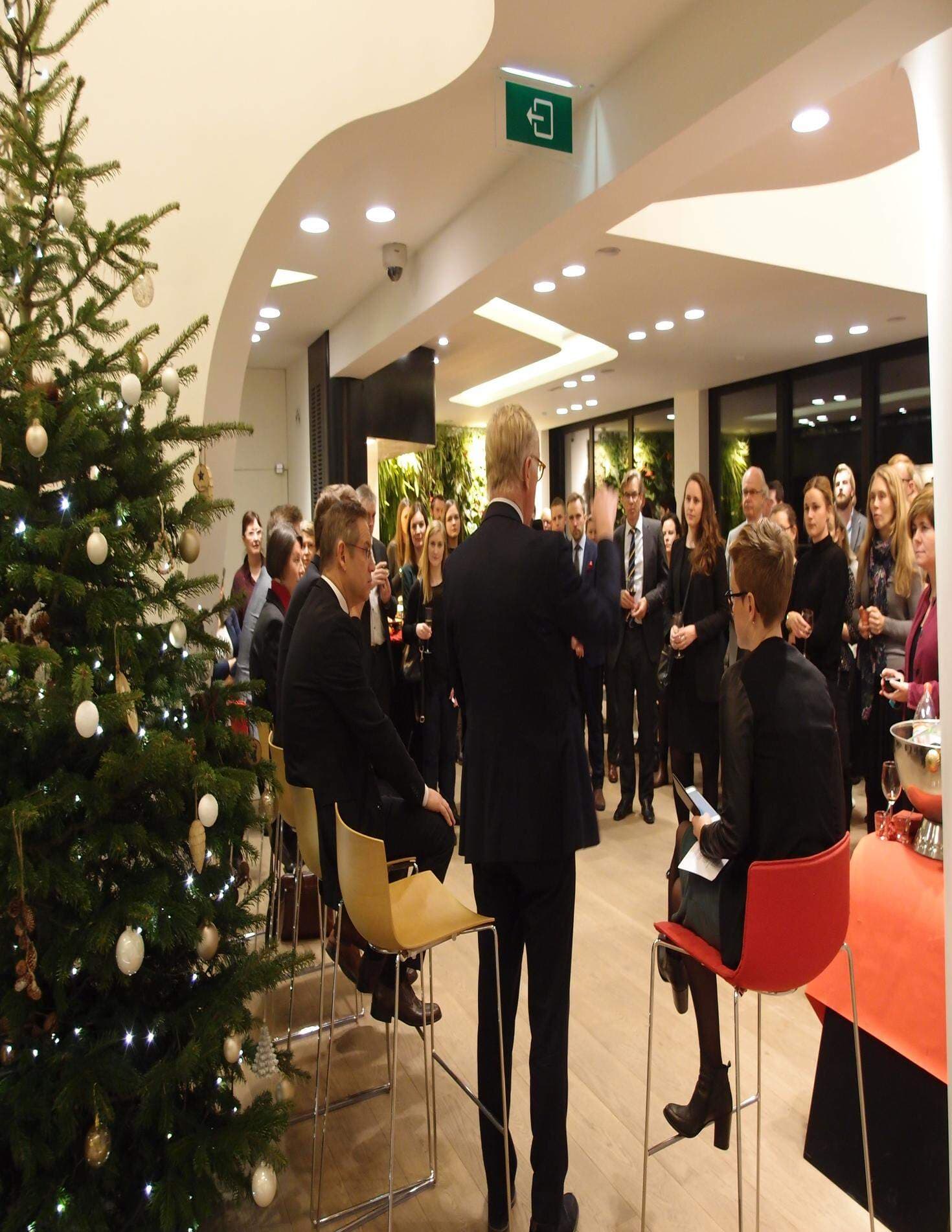The future of Europe
New ways to tackle protectionism and the challenges of the union the upcoming years was on the agenda when the Swedish Society for Business and Politics, SPN, arranged its annual winter mingle in Brussels on December 5. The SPN invited new and old colleagues to the Nordic House for traditional Swedish Christmas snacks and drinks but also for a joint policy discussion. Participants for the discussion included the Swedish MEPs; Gunnar Hökmark (EPP), Fredrick Federley (ALDE) and Jakop Dalunde (The Greens), and also Thérèse de Liedekerke, Deputy Director General at BUSINESSEUROPE and Jens Hedström from the Confederation of Swedish Enterprise.

Given the turbulent times globally, the invited speakers started to point out their visions for the EU in the upcoming 5 years. Gunnar Hökmark started by stating:
- A lot of people going on about that EU is in a crisis. I disagree, EU itself is not in a crisis but EU faces many external crises at the moment. In order to tackle this EU needs to get back to its main purpose and do what we are supposed to do in order to fulfill our aims.
The other panelists agreed to this statement. Jens Hedström emphasized that the EU needs to get back to ‘its roots’ to maintain a safer and more competitive Europe. The core is agreements to form a strong Europe that holds us together. Free flow of information and the single internal market are key factors in order achieve a successful Europe. De Liedekerke stressed that the single market is a key factor and that Europeans no longer can take the benefits of the EU for granted. Peace, social protection, among other issues, are not to take for granted without a functioning EU. “We have prosperous countries, but we also have countries struggling. And we need to remember that when dealing with these issues and the realities of the single market”, de Liedekerke put forward.
- To me, peace and to cure this disease called nationalism, are the most important tasks for the EU, Jakop Dalunde stated. He also lifted an example from the US, where it has taken a long time to form a common identity within the country. “We might not realize how hard it is to socially unite 28 member states, but I believe that we can overcome this and work together in the EU”, he said.
Federley also pointed at the aspect about the member states’ role in the EU and the upcoming challenges to get member states working together. Federley expressed a frustration that a lot of the problems that the EU have with implementation of legislation is due to the lack of commitment of the member states and also the lack of agreements in the European Council. When new policy is failing, it is often because of the member states are blocking the proposal, not because of the European Parliament, Federley declared.
When the discussion continued to the topic of free trade, all of the participants agreed upon that politicians and the business sector needs a new way of talking about free trade and highlight the benefits of free trade more clearly. Anti-EU forces does not understand where all the jobs comes from. They usually think that countries can close their boarders and everything will be alright. Antagonists of free trade do not see that it is the ‘average Joe’ who will pay the price in the end, Federley said.
Dalunde continued talking about how the benefits of trade must be put into light.
- The benefits of trade must be acceptably shared in the society. Many people want protection from trade and globalization because they do not see how they could benefit from open and traded markets. For example, Sweden and the UK have been successful in distributing the trades befits in society.
Hedström added that this can be done when the society is working together, not just businesses, but also trade unions and politicians working together and standing up for free trade. Hökmark closed the discussion by stating the following;
- I have an economic theory and that is that ‘export require import’ and that ‘import require export’. You have to buy goods and services from others in order to make them buy from you. Where you have trade, you have more prosperity and more jobs, and we see that those countries who trade the most have the highest employment. Politicians needs to speak up in order to defend the principals of free trade.
Hökmark, who also is the Chairman of SPN, thanked all the participants at the event and the evening continued with mingling and ‘lusselbullar’ in the Christmas atmosphere.